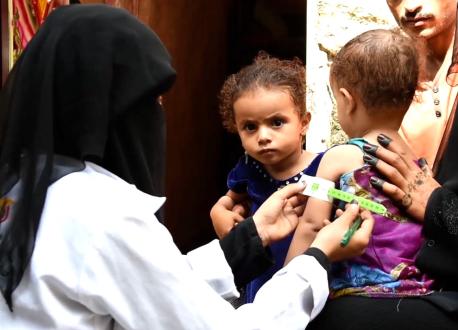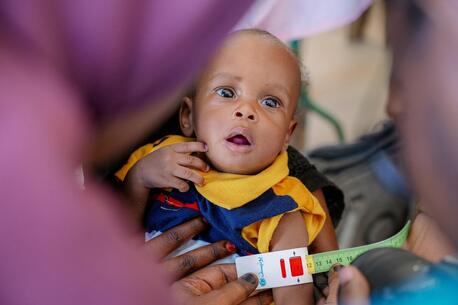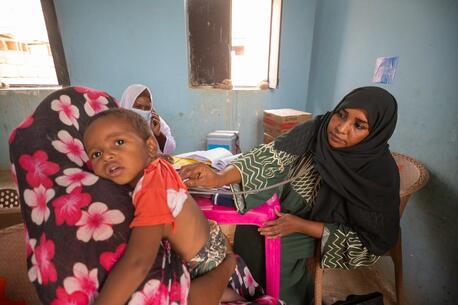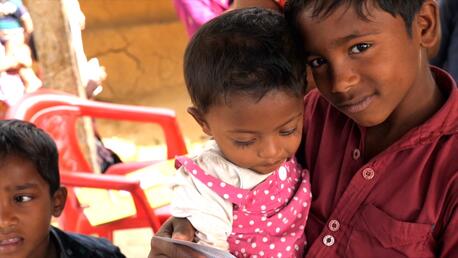
In Yemen, Hero Health Workers Care for Malnourished Children
Children in Yemen are growing up in the world's worst humanitarian crisis. Since fighting began in March 2015, 10,000 children have been killed or maimed — the equivalent of four children every day. Protracted conflict, economic devastation and a shattered health system have made it increasingly difficult for children to get the care and nutrition they need.
UNICEF-supported community health workers like Razaqah Ahmed Ahmed Haroon Haban are working to fill that need, going door-to-door to provide lifesaving nutrition support and health care. In the village of Wadi Habat, she often treats the same children — first for one ailment, then another. "The impact of the conflict on children was the spread of diseases, malnutrition and the difficulty of recovering from diseases," she says. "Just as children start to get better, their health relapses again."
Watch the video to see a hero health worker in action in rural Yemen:
The program is underfunded and the pandemic has reduced the number of families she can visit safely in a day's work, but she carries on, treating fragile, malnourished children, providing essential health care and nutritional support.
"COVID-19 has affected me, my society and especially children who suffer from malnutrition. It has also affected my work and the arrival of supplies," she says. "Thank God that the people of my village call me when they need help, because people are very poor here, diseases and epidemics are widespread, and as long as this unjust war continues, diseases will spread more."
Four out of five children in Yemen — 11 million children — need humanitarian assistance. UNICEF is on the ground, providing vital services. To continue this lifesaving work until mid-2022, UNICEF urgently needs $235 million. Please donate.
Top photo: In the village of Wadi Habat, Yemen, UNICEF-supported community health worker Razaqah Ahmed Ahmed Haroon Habad measures a child's mid-upper arm circumference to screen for malnutrition. Video edited by Tong Su for UNICEF USA
HOW TO HELP
There are many ways to make a difference
War, famine, poverty, natural disasters — threats to the world's children keep coming. But UNICEF won't stop working to keep children healthy and safe.
UNICEF works in over 190 countries and territories — more places than any other children's organization. UNICEF has the world's largest humanitarian warehouse and, when disaster strikes, can get supplies almost anywhere within 72 hours. Constantly innovating, always advocating for a better world for children, UNICEF works to ensure that every child can grow up healthy, educated, protected and respected.
Would you like to help give all children the opportunity to reach their full potential? There are many ways to get involved.





